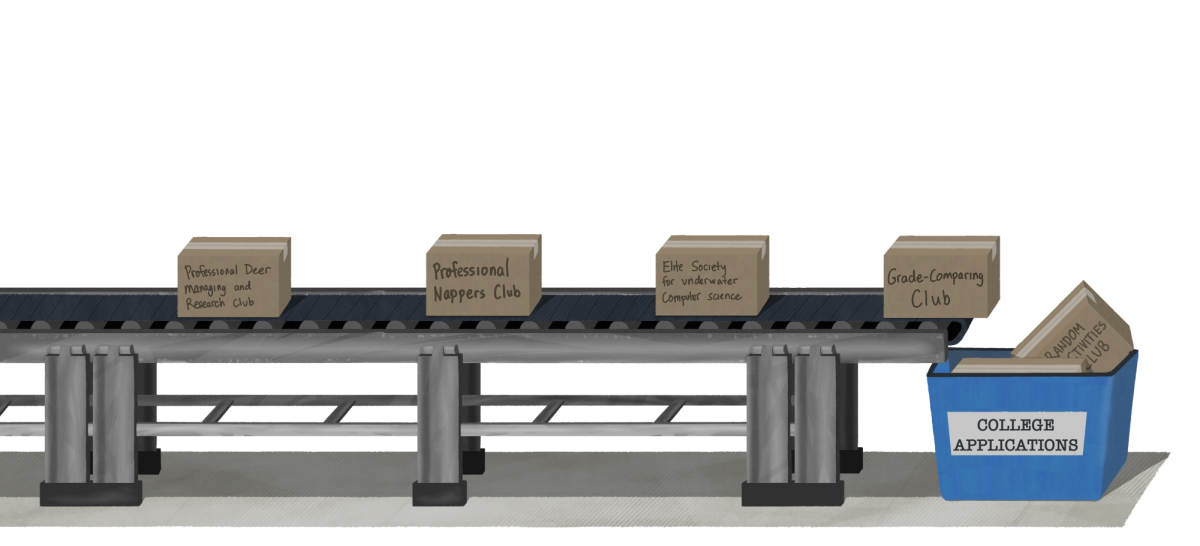Written by Ariel Pan
While Andy Williams may be singing “It’s the Most Wonderful Time of the Year,” many students would beg to disagree. December means finals season; people are already starting to prepare study guides, hiring last-minute tutors and using finals calculators to figure out the minimum amount of work needed to maintain a good grade. But in the flurry of final projects and last-minute essays, studying for every single final is an impossible task. To better reduce stress, students should not have to take a final exam if they have an A in the class because they have already proven that they exerted the effort necessary to receive that A.
Not having to take finals in all classes allows students to focus on classes with which they have the most trouble. Right now, it is a bit like trying to stop all the holes in a leaking boat; water keeps coming in. Many students already prioritize classes, choosing to study more for classes with lower grades. But even if one has an A in the class, it is not a given; he or she still has to receive an average grade on the class final to maintain that A. As most finals are weighted about 15 to 20 percent of the total grade, they have the ability to raise or drop a grade by a few percentages. Studying for those classes diverts time away that could be used to study for classes in which the students have borderline grades. Focusing on a couple of finals allows students to spend more time studying that subject and gives them more time to understand and retain what they do not know. Rather than trying to cram dates and formulas that they will forget right after, students can use final-free periods to study for other tests and prepare for final presentations, effectively reducing stress.
In a test-based class such as math, if a student has an A, it means they did well on quizzes and/or chapter tests. It means they understood the subject matter and are efficient in test-taking; taking the final exam will not change that. In a project or essay-based class, the grade is more based on the student’s work during the semester. Students who worked hard to get an A in those classes should not have to stress about those finals. Finals try to be all-encompassing, but due to the amount learned in the semester, they are often less detailed than unit tests. Some teachers already allow students with 94 percent or higher in the class to skip the final, citing that there is no point in testing students on what they already know.
Even if a final is not especially hard, working for 100 minutes takes its toll on the mind and on the second day of finals with periods A, C and G, this can be grueling. If one does not have to take a final in all of his or her classes, then it can free up one of these testing periods so students can save their best for their hardest class. They should not have to waste energy taking the final in a class in which they already have an A because they already put their work in all semester.
Some might say that letting those with As not take the final widens the gap between those with As and those with lower grades in the class. But people are not all the same. They may excel in different classes or subjects and it is unreasonable to suggest that people should all succeed in the same classes. A student might have trouble in math but excel in English or vice versa. Again, focusing on one subject is easier than spreading oneself across two.
Finals are meant to test on general knowledge of the class over the course of a semester. But if a student has already put in the work over the semester and maintained an A, there is no point in testing them further. If they worked hard over the semester but still did not achieve an A, not having to take a final in classes in which they do have As will free up time so they can really focus on mastering the material in more challenging classes. While this does not make taking finals any easier or more fun, it will bring us one step closer to the most wonderful time of the year.











